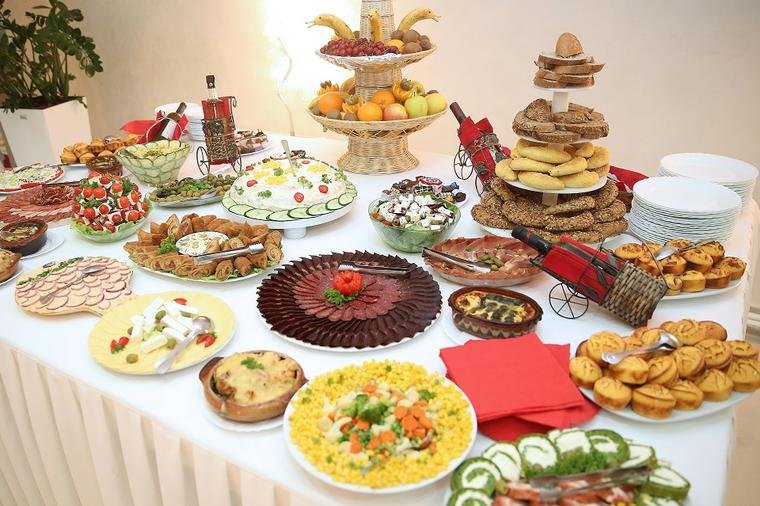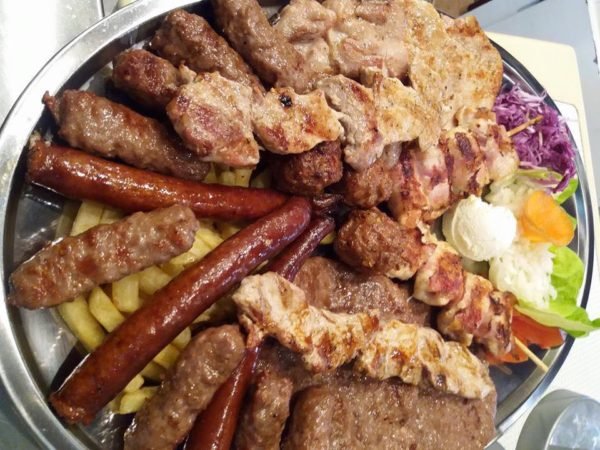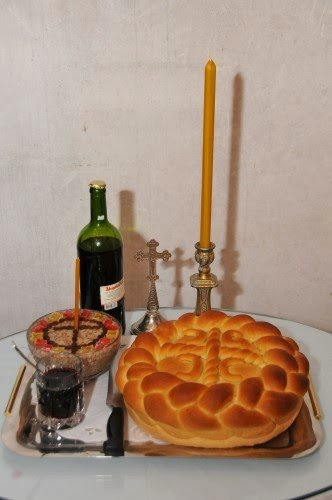


PATRON SAINT
One of the main features of Serbian Orthodoxy, which is not known to the rest of the Christian world, is the glory of baptism. Prior to Christianity, Serbs were a polytheistic nation. In addition to the supreme god Perun, whom everyone respected, each home had its own deity. By nature sentimental and related to domestic habits and customs, in the encounter with Christianity, the Serbs have most severely renounced these domestic deities. He replaced the wise and practical son of Nemanja, Saint Sava, with many gods idols and idols, who became patrons and assistants of Serbian homes, churches and monasteries, families and tribes, villages and towns, as well as entire provinces and regions. This is how baptismal glory came into being,
For practical reasons, the church advised and recommended to families that they take saints for their baptismal glory. Great saints were chosen to be celebrated in the fall, winter and spring, when there was less work in the field, since the Serbs were a people engaged in farming and livestock farming. Some families, again, chose the day they would be baptized, and took the saint who is celebrated that day for their baptismal glory.
The importance of glory, the glorification of baptismal glory, has remained the only unbroken tradition among the Serbs from the time of baptism to the present. Many things have changed in the folk life and customs, but glory has been preserved as the greatest shrine of our people. The Serb celebrated glory in the most glorious days of its history, but also during the five centuries of enslavement under the Turks. in wealth and abundance. In the midst of the fiercest battles in the trench, our soldiers broke the fabulous soldiers' bread (tajin) singing the tropar of their glory, burning a piece of wax that they brought home, praying to God for help and happier days. After World War P at a time of unprecedented ungodly and anti-religious propaganda, Serbs did not renounce their glory and, it can be said, that baptismal glory preserved the Orthodox faith and tradition in our nation.
When does one home, one family, begin to glorify baptismal glory? . If they are celebrating the same glory then they are from the same ancestor, but over time and displacement they have moved away from each other and become unknown.
When does a father give glory to his sons? If the sons live with their father in one house, then they all celebrate glory together. However, when one of the sons conceives his family, marries and no longer lives with his father, he should immediately start celebrating baptismal glory in his home. It is completely wrong that some today do not celebrate, saying: my father is alive and he is celebrating. So, as soon as one lives separately and has his own family, he is obliged to celebrate his glory, for glory is the protector of the home hearth and the helper in all work, the great blessing of God and the protector of all the household, especially children.
How is baptismal glory received from the father? In the first year, when a son sets up an independent household, he comes to his father for glory. When the cake is cut, the father hands over one quarter of the cake to his son, they kiss, congratulate each other, and the father wishes his son and his grandchildren, future grandchildren and descendants, to glory for a long time in health and in a good mood. The son carries a piece of cake home, shares it with his family, and next year he begins to regularly celebrate his baptismal glory.
Preparing for glory. A few days before the celebrations, preparations are underway in the home where the celebrations are celebrated to make the celebrations as festive and dignified as possible. The house is cleaned, cleaned and tidy. The children, especially children, are bought something new, from suits, to "repeat" it on the day of glory. There is a festive atmosphere in the house, a cheerful spiritual mood and joy in the search for glory.
Priesthood sanctification According to the ancient and established practice of our church, in the time before glory, the priest sanctifies the township of vodka in the houses of worship. To sanctify the vodka, the housewife prepares the following: one bowl (bowl) of water, a bouquet of basil, a small candle, a censer with a grill or a briquette, incense and a list of the household. All this is placed on the table in the room where the icon is famous, which is on the east wall of the room. It is desirable that at the rite of the sanctification of the waters, everyone is in the house. That is why, at least the day before, the priest "schedules" a guide, that is, announces to the host at what time it is right for everyone to be together and in prayer. It is usually known in the village when a priest will come to the area, so the guide is not "scheduled". When the vodka is avenged, all the householders get a little drunk with this hallowed vodka, and the rest is made with a famous cake. If the water shines on the day of glory, along with the cutting of the cake, as the household gets a little drunk, the rest is poured over some grafted fruit, or flowers in the house.

These are not your images, please use OCD community only for original content or source the images.
ok i didn't know new i'm sorry
np!
Congratulations @stimburgarin! You have completed the following achievement on the Steem blockchain and have been rewarded with new badge(s) :
You can view your badges on your Steem Board and compare to others on the Steem Ranking
If you no longer want to receive notifications, reply to this comment with the word
STOPTo support your work, I also upvoted your post!
Do not miss the last post from @steemitboard:
Vote for @Steemitboard as a witness to get one more award and increased upvotes!
🤦♀️
Congratulations @stimburgarin!
You raised your level and are now a Red Fish!
Do not miss the last post from @steemitboard:
Vote for @Steemitboard as a witness to get one more award and increased upvotes!
cool post, nice read!